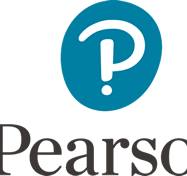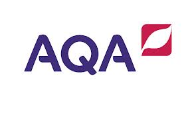Find out everything you need to know about examinations at our school, from contact details to exam boards.
No items found.
Find out everything you need to know about examinations at our school, from contact details to exam boards.

Exam and revision can be a daunting prospect for both students and parents. At UCA we want to take a supportive and pro-active approach to revision by providing students and parent's with as many resources as possible.
If you are struggling to find ways to revise then please access the links below which will take you to a folder full of materials for each subject. Each student in Year 11 also received a revision pack filled with resources and revision guides for each subject at the beginning of the year. These will prove invaluable in helping students prepare for their exams.
Exams play a crucial role in education, serving as a means of assessing both the student’s understanding of the material and their ability to apply knowledge in practical scenarios. Exam and revision can be a daunting prospect for both students and parents. At UCA we want to take a supportive and proactive approach to revision by providing students and parents with as many resources as possible. Here are a few reasons why exams are important:
1. Measurement of Knowledge and Understanding
Exams are designed to test the depth of a student’s understanding and knowledge of a particular subject. Through exams, students are assessed on their ability to recall, apply, and analyse information, which reflects how well they have mastered the material taught in class.
2. Encouragement of Active Learning
The preparation for exams encourages active learning. When students study for exams, they engage with the material more thoroughly, improving their comprehension and retention of key concepts. This focused study time can enhance critical thinking and problem-solving skills.
3. Feedback for Students and Teachers
Exams provide valuable feedback both for students and teachers. For students, exams highlight areas where they excel and areas where they may need further study. For teachers, exam results can help them assess how well the class is grasping the subject matter and if any changes to teaching methods are needed.
4. Preparation for Real-Life Challenges
Exams simulate real-world situations where people are expected to work under pressure and manage their time effectively. Learning how to deal with the stress of exams helps students build resilience, organisational skills, and time management abilities, all of which are useful in their future careers and lives.
5. Standardised Assessment
Exams provide a standardised method for evaluating all students equally. Whether in a local classroom or across an entire country, exams allow for a fair comparison of a student’s abilities based on objective criteria. This can be particularly important when making decisions about university admissions or job placements.
6. Promotes a Sense of Achievement
Successfully passing exams can boost a student’s confidence and sense of accomplishment. It reinforces the idea that hard work and dedication yield positive results, which can motivate students to continue learning and striving for success.
7. Identifying Strengths and Weaknesses
Exams allow students to identify their academic strengths and weaknesses. They can focus on areas they are struggling with, and improve their understanding in those areas. This process can help students grow academically and personally.
8. Building a Strong Academic Foundation
Exams often represent milestone assessments within an academic program. Performing well in exams helps lay the groundwork for future academic pursuits. It helps build a foundation of knowledge that can be applied to more advanced subjects and practical fields.
Conclusion:
Exams are an essential part of the educational process, providing a measure of a student’s academic progress and abilities. They offer a structured opportunity for students to demonstrate what they’ve learned, while also preparing them for the challenges and pressures of life beyond the classroom. Though they can sometimes feel stressful, exams contribute significantly to the development of essential skills such as critical thinking, discipline, and time management.
Year 11 internal exams generally take place around the end of October, roughly 1 week and the beginning of February, roughly lasting 2 weeks. The GCSE starts in May.
Year 10 Internal exams generally take place in February for one week and in June.
Examination certificates are very important documents which students may need when applying for employment or a place at college or university.
We will keep examination certificates for no more than 3 years after the student has left, after which time they will be destroyed.
If you are a past pupil and have not yet collected your certificates please contact the school to arrange to do so. If you are a current pupil and have older siblings or friends who may not have collected their certificates please remind them to do so.

L1/2 Cambridge National in Engineering Design
GCSE in Mathematics (Foundation)
L1/2 Cambridge National in Engineering Design

BTEC L1/2 Award in Enterprise
BTEC L1/2 in Child Development
BTEC L1/2 in Performing Arts (with a dance approach)
BTEC L1/2 in Performing Arts
BTEC L1/2 in Health and Social Care
GCSE in Mathematics (Higher)
BTEC in Sport
BTEC L1/2 in Travel and Tourism

GCSE
GCSE
GCSE
GCSE
GCSE
GCSE
GCSE